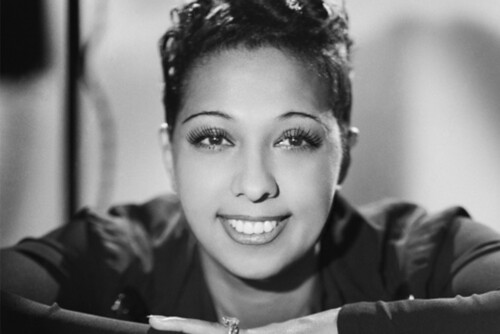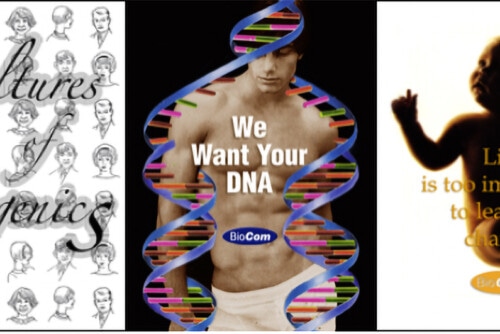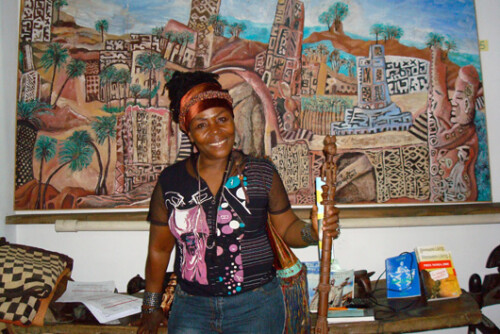Within the body of motion pictures that reference Baker, which includes her No. 8 ranking on “Wayne’s Top Ten Babes of All Time,” 1 she tends not to be the central character. There is a passing reference to her by a character in Coffee and Cigarettes (Jim Jarmusch 2004) when he discusses a past era in Paris’ café culture, perhaps when a certain Parisian flair for flirtation, fashion, and fantasy-in-the-everyday seemed within easier reach. In Triplets of Belleville (Sylvain Chomet, 2003), an animated version of Baker in the banana skirt capitalizes on her as it explores the erotic and exoticist dimensions of her relationship with her audiences. In Frida (Julie Taymor, 2002) she appears as “Paris Chanteuse” (Karine Plantadit-Bageot) and as a figure of Frida Kahlo’s sexual imagination. Beneath the radar of these theatrically released films is a short piece, Tree Shade (Lisa Collins, 1998), which circulated at festivals and is now distributed by Women Make Movies. In evoking Baker’s performance through an experimental form, it offers sharp insight on the relationship among citation, cinema, and Baker’s performance.
Tree Shade is a fable about a student, Savannah Mayfield (Renée Griggsby), coming to terms with her family tree through a class assignment to research her genealogy. The film is divided into segments that represent matriarchal generations of one family, and each woman’s story is rendered in the film style common to that time, with some contemporary touches that are witty and somewhat macabre. In the first section, which appears to be the pre-sound era of the 1920s, a maid named Etta Mae Mayfield (Girlina, a female impersonator) looks uncannily similar to Baker. She has the characteristic flapper hairstyle with the curl that Baker helped make into a style phenomenon. A self-expressive character, she reaches beyond her servant role and, like Baker, is drawn to beautiful clothes and the sensual pleasures of dancing. In the rising action of the scene, Etta Mae is interrupted by her husband the gardener (uncredited), who has stolen a visit with her while the bosses are supposedly away for the day. After initially scolding him, she relents and even changes into one of her mistress’ dresses, whose stylish cut contrasts with her uniform. We see the newlywed couple emerge from their working roles through their dancing, but only for a moment because the owners return unexpectedly, returning the couple to their places. What ensues in this confrontation lands Etta Mae in jail, but not before she flashes a direct look into the camera.
Etta Mae’s crime is to defend herself and protect her husband, but she is arrested—not strictly to punish her action, but to mark the boundaries inside which black women’s personalities should remain. The maid’s crime is audacity. The film encourages a sympathetic reception of Etta Mae’s crimes by emphasizing the way they reflect her will to pleasure, love, and style. The way the film takes Etta Mae’s perspective and depicts her abandonment of her assigned roles sweetly heroic makes Tree Shade one of the more startling Baker evocations in the cohort of samples.
Together with the films in which Baker actually starred, they constitute Baker’s cinematographic history, albeit in various ways. Baker samples range from work that cites her in a concrete way, such as film and vocal recording excerpts, to those that evoke her through partial references or imitations, such as in Beyoncé’s recent work and in Tree Shade, and in those films in which she appears as herself. Three final examples illustrate this continuum: Touki Bouki (Djibril Diop Mambéty, 1972), Alma’s Rainbow (Ayoka Chenzira, 1994), and Madame Sata (Karim Ainouz, 2002).
- This sentence refers to an early 1990s “Wayne’s World” skit shown on Saturday Night Live.[↑]



